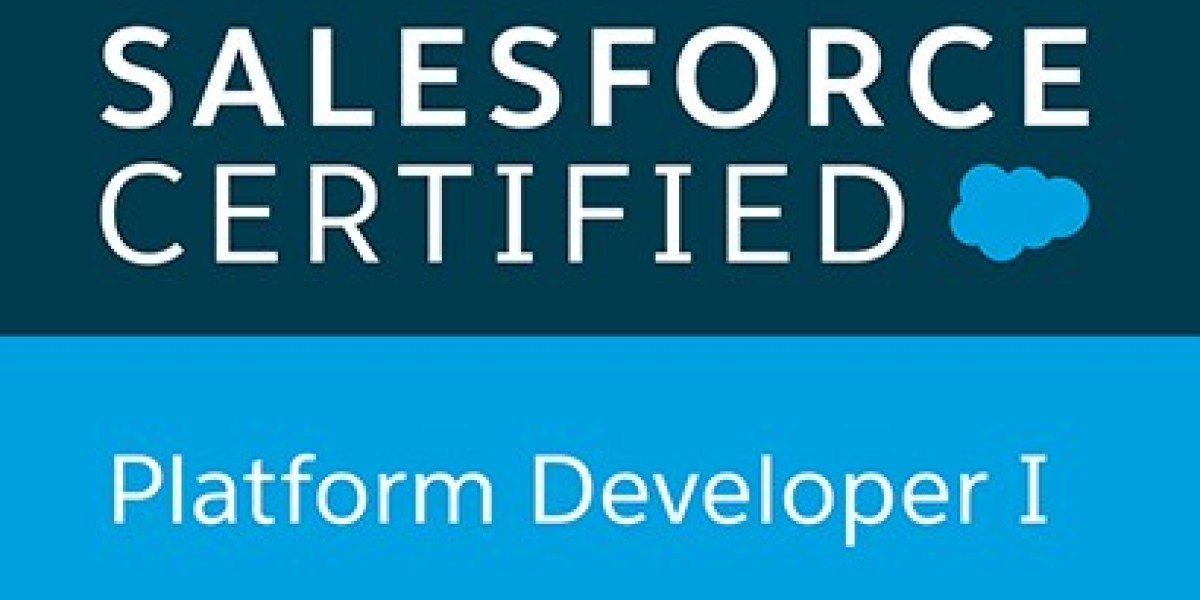The Salesforce Certified Administrator (ADM 201) certification is one of the most sought-after credentials for professionals looking to master the fundamentals of Salesforce administration. This certification validates your ability to manage and configure Salesforce, making it essential for those working in roles such as system administrators, consultants, and project managers within Salesforce environments.
The ADM 201 course is designed to help you build a solid foundation in Salesforce by covering topics like managing users, maintaining data quality, automating processes, and creating reports and dashboards. This comprehensive guide provides an overview of the Salesforce Certified Administrator (ADM 201) course, including its objectives, content coverage, exam structure, preparation strategies, and the career benefits associated with achieving this certification.
Who Should Take This Course?
The Salesforce Certified Administrator (ADM 201) course is ideal for:
- Individuals with some experience in Salesforce administration who want to formalize and enhance their skills.
- New Salesforce admins looking to gain expertise in configuring and managing a Salesforce environment.
- IT professionals and consultants transitioning to Salesforce roles.
- Project managers, business analysts, and sales professionals who work with Salesforce and want to deepen their understanding of the platform.
The course is suitable for both beginners and those with some experience who want to ensure they fully grasp the core concepts and best practices of Salesforce administration.
Course Objectives
The ADM 201 course and Salesforce CPQ Solution (CPQ301) Course focuses on helping you:
- Understand Salesforce Basics: Gain a deep understanding of Salesforce’s architecture, objects, and data models.
- Manage User Access and Security: Learn how to set up and manage users, profiles, roles, and permission sets.
- Configure and Customize Salesforce: Understand how to configure Salesforce to meet business requirements, including managing standard and custom objects, fields, and page layouts.
- Implement Data Management Strategies: Learn best practices for maintaining data quality, importing data, and managing data relationships.
- Automate Business Processes: Explore tools like Workflow Rules, Process Builder, and Flows to automate routine business tasks and processes.
- Create and Manage Reports and Dashboards: Master the skills needed to build powerful reports and dashboards that provide actionable insights for business users.
- Maintain and Monitor the Salesforce Environment: Understand how to handle system maintenance, troubleshoot issues, and implement changes in a controlled manner.
Topics Covered in the Course
The Salesforce Certified Administrator (ADM 201) course and Salesforce Certified Administrator (201) covers a wide range of topics organized into key domains:
Organizational Setup:
- Understanding the Salesforce environment and its capabilities.
- Configuring the company profile, including settings like fiscal year, currency, and business hours.
- Managing the Salesforce ecosystem, including features and release management.
User Setup and Access Control:
- Creating and managing users, roles, and profiles.
- Configuring login access and managing security settings.
- Implementing permission sets, sharing rules, and access controls for different user groups.
Standard and Custom Objects:
- Managing standard objects like Accounts, Contacts, Leads, and Opportunities.
- Creating custom objects, fields, and relationships.
- Configuring record types, page layouts, and custom apps to tailor Salesforce to business needs.
Sales and Service Cloud Applications:
- Understanding the core components of Sales Cloud and Service Cloud.
- Configuring sales processes, lead management, and opportunity stages.
- Managing service processes, including case management and service entitlements.
Data Management:
- Ensuring data quality with tools like validation rules and duplicate management.
- Importing, exporting, and updating data using tools like Data Loader and Import Wizard.
- Implementing data retention strategies and managing relationships between records.
Reports and Dashboards:
- Building custom reports with filters, formulas, and Salesforce Platform Developer I Course groupings.
- Creating dashboards with dynamic components and setting up scheduled report deliveries.
- Managing report visibility, subscriptions, and data access.
Automation Tools:
- Configuring and using automation tools like Workflow Rules, Process Builder, and Flows.
- Setting up approval processes and automated alerts for streamlined workflows.
- Understanding the difference between declarative automation tools and when to use each.
Service and Support Applications:
- Configuring support settings, including case assignment rules and escalation rules.
- Managing queues, service consoles, and support channels.
- Implementing knowledge management and service analytics.
Activity Management and Collaboration:
- Managing tasks, events, and activities.
- Using Chatter and other collaboration tools to improve communication within Salesforce.
AppExchange and System Customization:
- Installing and managing apps from AppExchange to extend Salesforce functionality.
- Understanding system customization options, including custom settings and metadata management.
Exam Format and Structure
The Salesforce Certified Administrator (ADM 201) and AWS Certified Security Specialty exam is structured to test your knowledge across the topics covered in the course. Here’s what you need to know about the exam format:
- Duration: 105 minutes (1 hour and 45 minutes).
- Question Types: Multiple-choice and multiple-select questions.
- Number of Questions: 60 questions.
- Passing Score: 65% or higher.
- Exam Cost: $200 USD (plus applicable taxes).
The exam is designed to assess both your theoretical knowledge and practical application skills. The questions range from basic concepts to scenario-based problems that require you to apply your knowledge to real-world situations.
Preparation Strategies for ADM 201
To pass the Salesforce Certified Administrator (ADM 201) exam, a strategic preparation approach is crucial. Here are some recommended strategies:
Review the Official Exam Guide: Start by downloading the official Salesforce Certified Administrator exam guide. This guide outlines the key domains, weightings, and objectives that will be tested.
Enroll in a Professional Training Course: There are numerous online training platforms, such as Trailhead by Salesforce, Udemy, and Simplilearn, that offer comprehensive ADM 201 courses. These courses include video lectures, hands-on labs, and practice exams.
Leverage Salesforce Trailhead: Salesforce’s Trailhead platform offers free, interactive learning paths that cover all the topics in the ADM 201 exam. Completing trails, modules, and projects will give you hands-on experience with Salesforce features.
Join Study Groups and Online Communities: Engage with other Salesforce professionals through study groups, forums, and LinkedIn communities. Participating in discussions and Certified Cloud Security Professional (CCSP) Course sharing resources can be immensely helpful.
Practice with Real-World Scenarios: Use a Salesforce Developer Edition account to practice real-world scenarios, such as creating custom objects, building reports, and automating processes. Hands-on experience is key to passing the exam.
Take Practice Exams: Practice exams are essential for gauging your readiness and identifying areas where you need further review. Salesforce offers official practice exams, and there are many third-party providers that simulate the exam environment.
Review Salesforce Documentation and Help Articles: Salesforce’s official documentation is a comprehensive resource for detailed information on each topic covered in the exam. Studying these resources can clarify complex concepts and enhance your understanding.
Benefits of Salesforce Certified Administrator (ADM 201) Certification
Earning the Salesforce Certified Administrator (ADM 201) certification offers several significant benefits:
Career Advancement: The ADM 201 certification is a valuable credential that can help you land roles like Salesforce administrator, consultant, or business analyst. It’s often a requirement for many Salesforce-related job postings.
Increased Earning Potential: Certified Salesforce professionals typically earn higher salaries due to the demand for skilled administrators. The ADM 201 certification can lead to better job opportunities and CompTIA Security+ (SY0-701) Course compensation.
Recognition and Credibility: Being a Salesforce Certified Administrator demonstrates your expertise and commitment to mastering the platform. It enhances your professional credibility and makes you a trusted resource within your organization.
Solid Foundation for Advanced Certifications: The ADM 201 certification serves as a stepping stone for more advanced Salesforce certifications, such as the Salesforce Advanced Administrator, Platform App Builder, or Service Cloud Consultant certifications.
Hands-on Skills for Real-World Applications: The knowledge and skills gained through the ADM 201 course can be immediately applied in your current job, helping you solve business challenges and improve processes using Salesforce.
Conclusion
The Salesforce Certified Administrator (ADM 201) course is an essential training program for anyone looking to establish a career in Salesforce administration. Whether you are new to Salesforce or looking to formalize your skills with a certification, the ADM 201 course provides a comprehensive overview of Salesforce’s key features and capabilities. By mastering these concepts and passing the certification exam, you’ll be well-equipped to manage Salesforce environments, enhance business operations, and Certified in Risk and Information Systems Control (CRISC) Course advance your career in the rapidly growing world of cloud technology.



